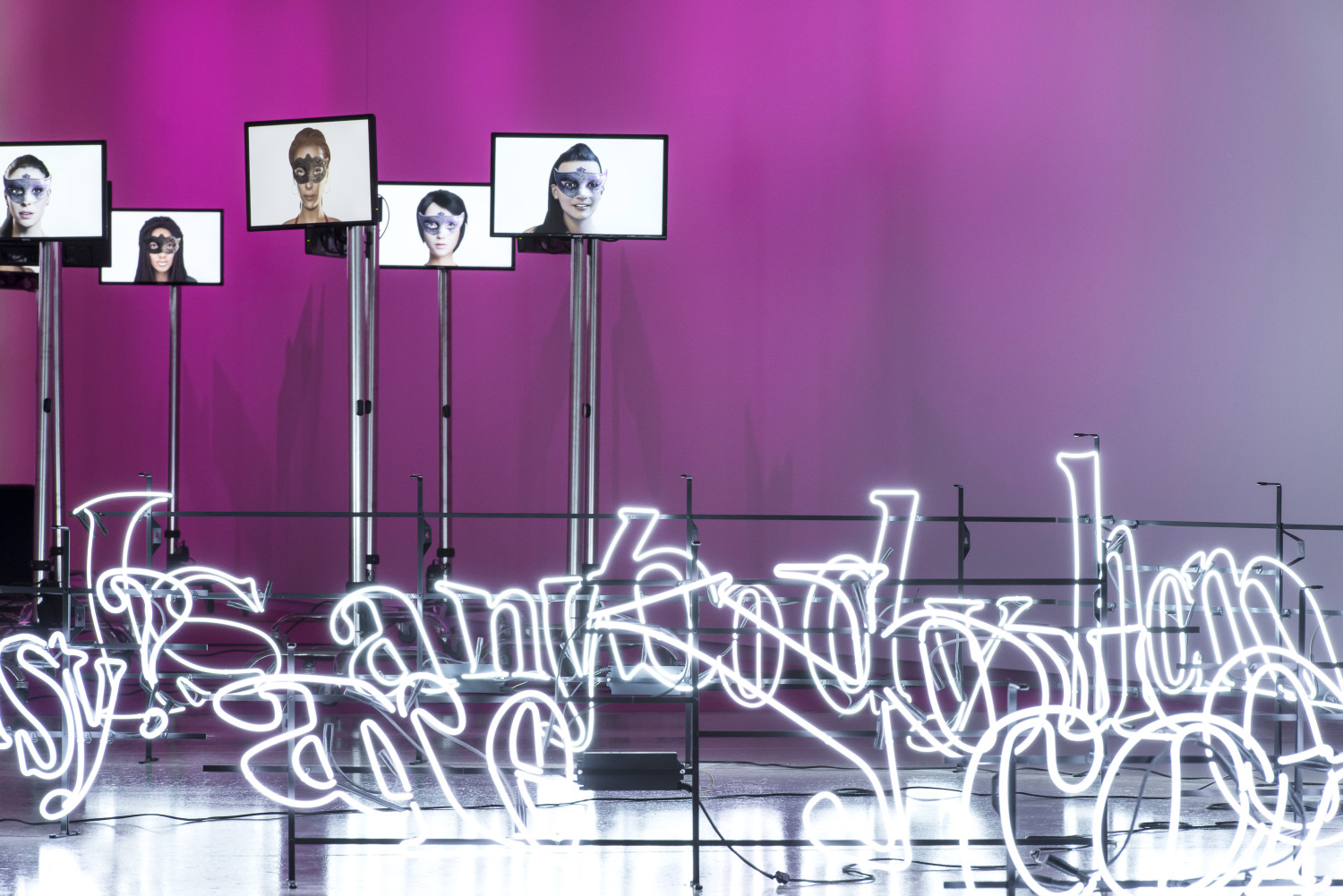
Image Courtesy: !Mediengruppe Bitnik
Solve This Captcha - like Ashley Madison Angels at Work - is part of a series of works researching Ashley Madison, a Canadian online dating service marketed worldwide to married people seeking an affair. In July and August 2015, an anonymous group called The Impact Team stole and released all of Ashley Madison's internal data - including the entire website code and functionality, customer data and the CEO's emails. The data breach revealed that - with a disproportionate number of male subscribers and virtually no human women on the site - Ashley Madison had created an army of 75 000 female chatbots to draw the 32 million male users into (costly) conversations.
!Mediengruppe Bitnik use Ashley Madison as a case study to raise questions around the current relationship between human and machine, Internet intimacy and the use of virtual platforms to disrupt physical spaces.
In Solve This Captcha, the pickup lines from Ashley Madison are rendered as captchas in neon. The luminous pieces capture the ambiguous nature of the bot-human divide. With around half of all online traffic pertaining to bots, the digital landscapes around us are transforming. Who is still part of the system and who is the system for? How do automated, algorithmic and artificially intelligent systems influence our reality and everyday life?
The idea that we are surrounded by bots, that we communicate with them on a daily basis and that we can hardly distinguish them from real people, is presented to viewers when they stand before large, luminous surfaces of the work series Solve This Captcha. Captchas are sequences of typographic characters only legible to people and not to robots. These online Turing tests function as gatekeepers to keep bots out of social networks - a standard that needs to be maintained with increasing efforts so that social media platforms are not flooded with machine creatures, and in order to ban spam. But these barriers, installed to keep bots out, also create work for people who must now constantly prove they are not machines. But not only that: when machines fail to get around captchas, workers in low-wage countries are used around the clock to circumvent them. People work in bot-like fashion so that bots can appear to be human.















